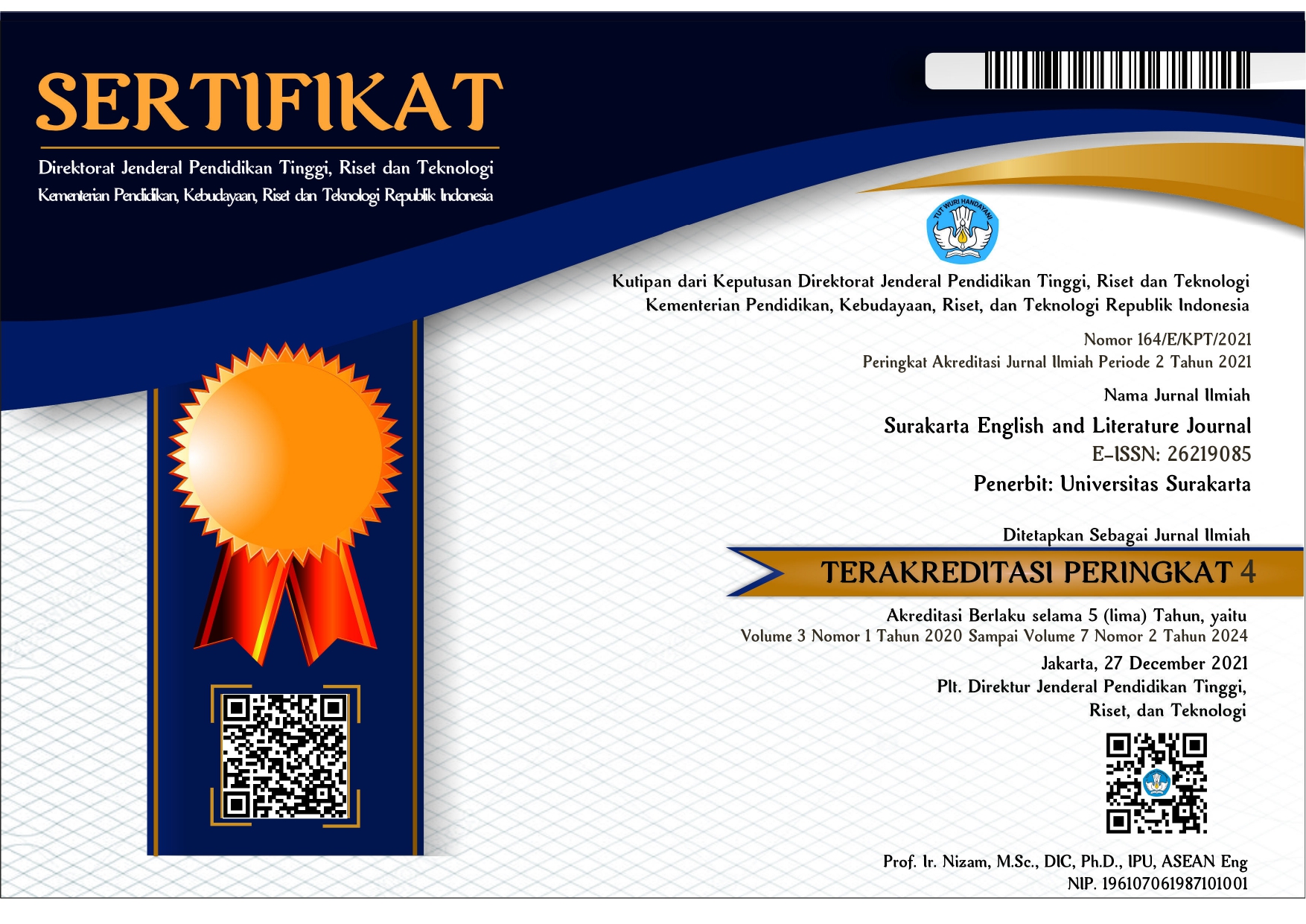Introverted Students’ Perceptions of the Yoodli AI in Public Speaking Course
DOI:
https://doi.org/10.52429/selju.v7i2.262Keywords:
introverted, public speaking, adjacency pairs, noodleAbstract
This research evaluates the impact of the developed artificial intelligence tool- Yoodli on public speaking skills as well as the confidence of introverted students. AI technology has grown rapidly in education, but little research focuses on its impact on introverted users. Qualitative methods are used, with data collection through observation and in-depth interviews. The results of the study showed that the majority of participants experienced significant improvements in public speaking skills and confidence after using Yoodli. These results show that Yoodli can be a useful solution for resolving introverts' difficulties when giving public speeches. Moreover, Yoodli may be customized to satisfy various individual demands and offer objective, consistent feedback. The research enriched the literature on learning public speaking skills by adding new perspectives on the use of AI.
References
Alhazmi, A. A. & A. (2022). Phenomenological Qualitative Methods Applied to the Analysis of Cross-Cultural Experience in Novel Educational Social Contexts. Frontiers in Psychology.
Ambrose, S. et. al. (2010). How learning works: Seven research-based principles for smart teaching. CA: Jossey-Bass.
Amelia, Dina, et.al. (2022). Improving Public Speaking Ability through Speech. Journal of Social Sciences and Technology for Community Service (JSSTCS), 3(2).
Badil, Dildar, et.al. (2023). The Phenomenology Qualitative Research Inquiry: A Review Paper: Phenomenology Qualitative Research Inquir. Pakistan Journal of Health Science, 4(3).
Hattie, J. (2009). Visible learning: A synthesis of over 800 meta-analyses relating to achievement. Routledge.
Hidayatullah, E. (2024). The Impact of Talkpal.AI on English Speaking Proficiency: An Academic Inquiry. Journal of Insan Mulia Education, 2(1), 19–25. https://doi.org/10.59923/joinme.v2i1.98
Jafar, W. A. (2019). Persepsi Masyarakat terhadap Urgensi Fiqh Moderat.Vanda Mayer, R. E (2 (nd)). Pearson Merrill Prentice Hall.
Junaidi, et. a. (2020). Artificial Intelligence in EFL Context: Rising Students’ Speaking Performance with Lyra Virtual Assistance. International Journal of Advanced Science and Technology, 29(05).
Laney, M. O. (2002). The introvert has an advantage in how to thrive in an extrovert world. Workman Publishing Company.
Liem, A. D., Lau, S., & Nie, Y. (2008). The role of self-efficacy, task value, and achievement goals in predicting learning strategies, task disengagement, peer relationship, and achievement outcome. Contemporary Educational Psychology. Contemporary Educational Psychology, 33(4), 486–512. https://www.sciencedirect.com/science/article/abs/pii/S0361476X07000276
Mayer, R. E. (2008). Learning and instruction (2nd ed.). NJ: Pearson Merrill Prentice Hall.
Mohammad, T. F., Marada, N., Nifat, N., Hatta, S. R. H., & Fajrianti, F. (2023). Online or Offline: Perception of English Students Toward Learning Speaking During The Pandemic. Ideas: Jurnal Pendidikan, Sosial, Dan Budaya, 9(2), 667. https://doi.org/10.32884/ideas.v9i2.1224
Rahman, B. I. H. (2022). Exploring students’ public speaking anxiety: Introvert vs extrovert. Journal of English Language Studies, 7(1), 107–120. https://jurnal.untirta.ac.id/index.php/JELS
Rosyidah, R. H. (2024). Understanding the Language Skills of a 19-Year-Old Individual with Down Syndrome: A Psycholinguistics Case. Surakarta English and Literature Journal, 7. https://ejurnal.unsa.ac.id/index.php/selju/article/view/210
Saleh, Z. (2019). Artificial Intelligence Definition, Ethics and Standards. ResearchGate. https://www.researchgate.net/publication/332548325_Artificial_Intelligence_Definition_Ethics_and_Standards
Setiawati, et. a. (2015). Implementasi MBTI Untuk Pengembangan Karir Mahasiswa: Studi Perbedaan Tipe Kepribadian Pada Mahasiswa Bimbingan Konseling. Jurnal Penelitian Ilmu Pendidikan, 8(2).
Sinambela, N. J. M. . (2006). Keefektifan Model Pembelajaran Berdasarkan Masalah (Problem-Based Instruction) Dalam Pembelajaran Matematika untuk Pokok Bahasan Sistem Linear dan Kuadrat di Kelas X SMA Negeri 2 Rantau Selatan Sumatera Utara. Pasca Sarjana Universitas Negeri Surabaya.
Sugiyono. (2012). Metode Penelitian Kuantitatif, Kualitatif, dan R&D. Alfabeta.
Sugiyono. (2017). Metode Penelitian Pendidikan. Alfabeta, cv.
Sutikno, M. S. (2005). Pembelajaran efektive. Apa dan bagaimana upayanya? NTP Press.
Downloads
Published
How to Cite
Issue
Section
License
Copyright (c) 2024 rossy halim

This work is licensed under a Creative Commons Attribution-ShareAlike 4.0 International License.
Licensing for Data Publication
-
Open Data Commons Attribution License, http://www.opendatacommons.org/licenses/by/1.0/ (default)
-
Creative Commons CC-Zero Waiver, http://creativecommons.org/publicdomain/zero/1.0/
-
Open Data Commons Public Domain Dedication and Licence, http://www.opendatacommons.org/licenses/pddl/1-0/














